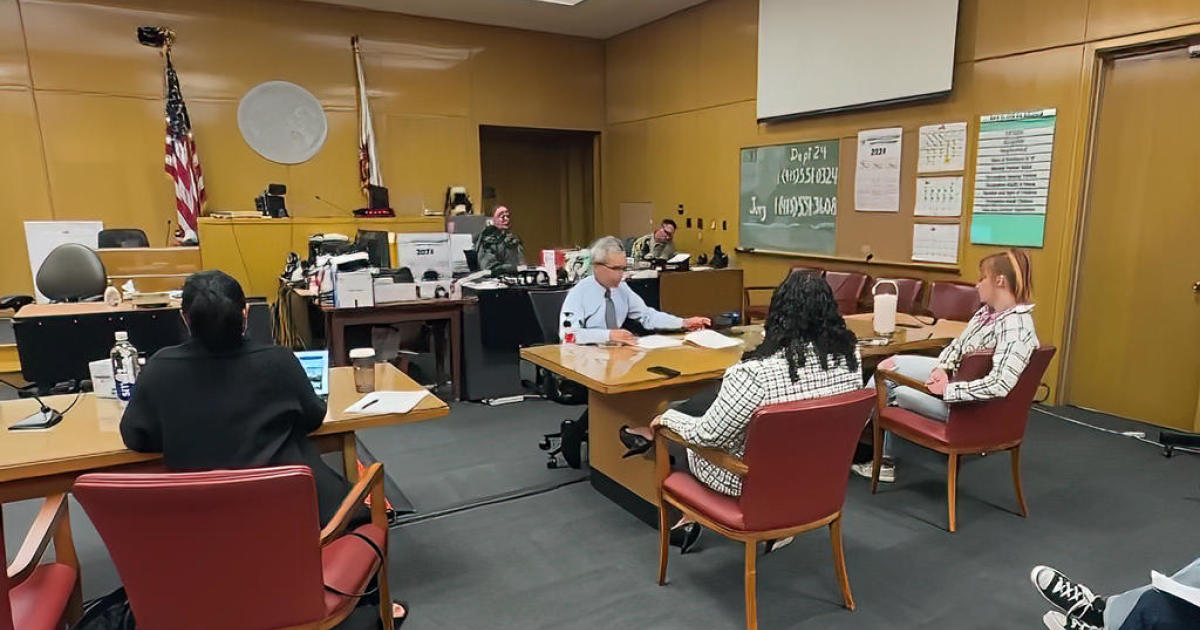U.S. Supreme Court rejects challenge to offshore fracking ban off California coast
SAN FRANCISCO -- The U.S. Supreme Court on Monday rejected a challenge to a court-ordered prohibition on offshore fracking in federal waters off the California coast.
Last year, the San Francisco-based U.S. Court of Appeals for the 9th Circuit ruled that the federal government violated the National Environmental Policy Act, Endangered Species Act and Coastal Zone Management Act when it allowed fracking and acidizing extraction practices at all offshore oil and gas wells in leased federal waters in the Pacific Ocean.
By denying the oil and gas interests' petition, the Supreme Court is allowing the 9th Circuit's decision to stand.
"One of our prized jewels is our beautiful coastline, and with (Monday's) decision, we are able to continue protecting it from harmful fracking," said state Attorney General Rob Bonta. "The science and the law were on our side, and the Supreme Court agreed that there was no reason to continue this litigation."
The 9th Circuit's decision noted that the Interior Department "disregarded necessary caution" when greenlighting fracking practices with unknown consequences.
The American Petroleum Institute, ExxonMobil and DCOR LLC, which joined the case as defendants, asked the Supreme Court to review the decision.
The U.S. Department of Justice, representing the federal defendant agencies, opposed the petition for review.
"(Monday's) decision is a victory for California's coast and ocean," said Kate Huckelbridge, executive director of the California Coastal Commission. "We are pleased that the Coastal Commission can continue to carefully scrutinize offshore fracking, as part of our mandate to protect state waters."
Initially in 2014, through several Freedom of Information Act requests, the nonprofit law firm Environmental Defense Center (EDC) found that more than 50 permits had been issued by the federal government without any public or environmental review and filed a lawsuit to stop fracking and acidizing in the region, according to the environmental nonprofit Center for Biological Diversity.
At least 10 fracking chemicals routinely used in offshore fracking could kill or harm a broad variety of marine species, including marine mammals and fish, the center found in 2014.
"The fracking ban will help prevent more toxic chemicals from poisoning fish, sea otters and other marine life. But our ocean won't be truly protected until offshore drilling stops once and for all. We hope this is the beginning of the end of drilling off California's coast," said Kristen Monsell, oceans legal director at the Center for Biological Diversity.
The appeals court decision also forbids the Interior Department from issuing fracking permits until it completes an Endangered Species Act consultation and an environmental impact statement that analyzes "the environmental impacts of extensive offshore fracking" and "fully and fairly evaluate[s] all reasonable alternatives."
Last year's ruling was the result of three separate lawsuits filed by the Center for Biological Diversity and Wishtoyo Foundation, Environmental Defense Center, Santa Barbara Channelkeeper, and the state of California. The lawsuits challenged the federal government's approval and inadequate environmental review of offshore fracking in the Pacific Ocean.
"The Supreme Court was right to reject the oil industry's latest attempt to allow fracking and acidizing in our waters with zero meaningful environmental review," said Maggie Hall, senior attorney at EDC. "The Santa Barbara Channel is one of the most ecologically rich and important regions in the world. As the climate crisis escalates, ending these destructive extraction practices is a matter of survival -- not just for the whales, otters and other animals in the Channel, but for all life on earth."
The American Petroleum Institute's vice president of upstream policy Holly Hopkins said in a statement about the case, "Access to the vast energy resources offshore is essential for meeting the growing demand for affordable, reliable energy while achieving our climate goals. API will continue to work with policymakers to advance opportunities that allow for the safe and responsible development of the Outer Continental Shelf."



